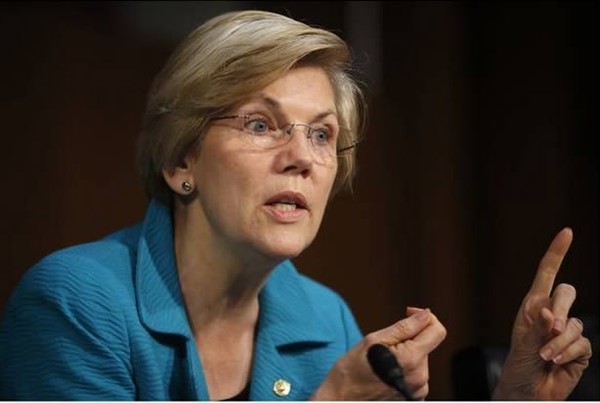Last week, U.S. Senator Elizabeth Warren dropped a bombshell piece of legislation to require every company with more than $1 billion in revenue or 5,000 employees to become a “benefit corporation.” Some called the legislation brilliant; others labeled it Marxist.
Complicated, self-organizing systems (like modern capitalism) rely on feedback. But we have de-emphasized all nonfinancial feedback in corporate law by operating under the notion of shareholder primacy, the assumption that corporations operate primarily for the benefit of shareholders.
In order to save capitalism, we need to upgrade its feedback mechanisms. Warren’s bill and the state legislation authorizing benefit corporations do just that. It is remarkable how closely the benefit corporation idea in her bill tracks legislation supported by Republicans around the country. These laws allow companies to give directors and managers greater discretion to create long-term, durable value for all stakeholders, and not just shareholders. Benefit corporations account for all of their impact, not just their financial return.
A critical distinction: Warren would impose a mandatory, federal system on all corporations, while the state law statutes allow a market decision as to adoption.
Bipartisan legislation
Benefit corporation statutes have been adopted in 34 states in the U.S., as well as Italy and Colombia, and are being pursued in South America, Europe, Canada, the United Kingdom, Australia, and elsewhere. Thirty chambers within the 34 legislatures that adopted a benefit corporation option did so unanimously. The laws were signed by 16 Republican governors including Mike Pence, Nikki Haley, Sam Brownback, Scott Walker and Jan Brewer. Libertarian Senator Rand Paul endorsed the benefit corporation in 2014.
I believe better corporate governance has become a bipartisan issue because of the importance of the corporate form to a successful capitalist society; as that society evolves, corporate laws must adapt. Our material success depends on capitalism, a self-organizing, bottom-up system, not a controlled top-down one (those tend to fail). But this success has created an increasingly interdependent globe, and critical social and environmental systems are at risk as the world’s carrying capacity for social instability, environmental pollutants and economic risk are approached.
The pure pursuit of profits is weakening the systems upon which we all depend and the public is noticing. BlackRock, the world’s largest asset manager, recognized this in its recent call on corporations to weave purpose into their pursuits: Without a sense of purpose, no company, either public or private, can achieve its full potential. It will ultimately lose the license to operate from key stakeholders.
Market demand
There are now more than 7,000 benefit corporations in the U.S., and 2017 saw the first IPO of a benefit corporation (Laureate Education). In February 2018, Ripple Foods, a dairy-free manufacturer start-up founded by Neil Renninger and Adam Lowry, completed a Series C funding round, putting the company in the ranks of other innovation-minded benefit corporations that have raised more than $100 million in venture capital, including AltSchool (K-12 education) and Lemonade (insurance brokerage).
In March 2018, the Gap announced that its subsidiary, Athleta, had become a benefit corporation, following other public companies like Campbell’s, Procter & Gamble and United Therapeutics in forming benefit corporation subsidiaries. Danone created the world’s largest benefit corporation to run its North American operations.
Directors and management now have the opportunity to choose from a broad menu of options to manage, measure and report their impact on society and the environment. If they do not choose wisely (or do not choose at all), they will miss information critical to business in the 21st century.
Warren’s bill is unlikely to be enacted any time soon. So voluntary uptake is the only current option, and may well be the best. This isn’t a matter of being forced to choose from a list of poor compliance options. Joining the “B Economy” is better for the world, and it can be plain good business as well.
The millennial workforce (with Generation Z following fast) cares about more than paychecks — they are looking to be engaged by meaningful careers. Consumers, too, care about whether their products were made in a manner that is kind to the environment, and to all the people who participate in the supply chain. As BlackRock pointed out on behalf of the $6 trillion it has under management, license to operate is becoming critical — communities and regulators will not continue to tolerate corporations who are not good citizens.
SoftBank’s backing of Lemonade shows benefit economy gaining VC traction
Companies, managers and directors need to up their citizenship game. Directors, as trustees of the institutions most critical to preserving social and environmental systems, should ask which tools are right for their corporations, and whether a legal option like benefit governance can provide a better platform for the future growth of their enterprise.
Rick Alexander is head of legal policy for B Lab and an attorney with Morris, Nichols, Arsht & Tunnell LLP. More from Rick:
What’s the fiduciary duty of index investors when it comes to gun companies?











